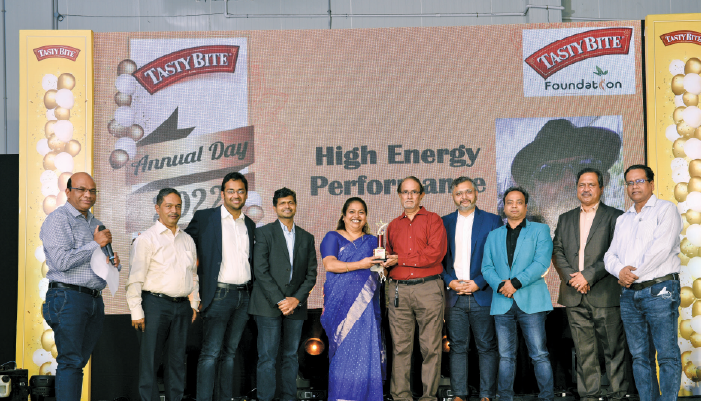


We interact with suppliers through periodic vendor meets and provide continuous feedback to suppliers on their performance. We employ both online and offline modes of communication via emails, physical meetings, site visits and telephonic communication.
We implemented various improvement projects and the best practices among suppliers are shared through supplier felicitation at Tasty Bite’s annual function. We also assisted suppliers in uncertain periods by making early payments and assisting them in securing commodity risk by placing orders.
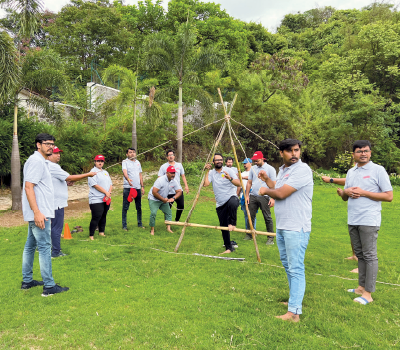
We develop the organic farmer community by encouraging them to undertake organic farming as it is more sustainable. We source fresh vegetables only through local farmers and provide continuous guidance to the Farmers Producer Organisation (FPO) for the development of conventional and organic raw material, so we are well placed to convert conventional products into organic products.
We support local entrepreneurs by guiding them to improve their quality assurance process. We also use our organic farm as a demonstration farm to the suppliers and other farmers. To encourage farmers, we pay a premium to them if they undertake sustainable farming practices for us as well as guarantee sourcing from farmers who grow organic products.
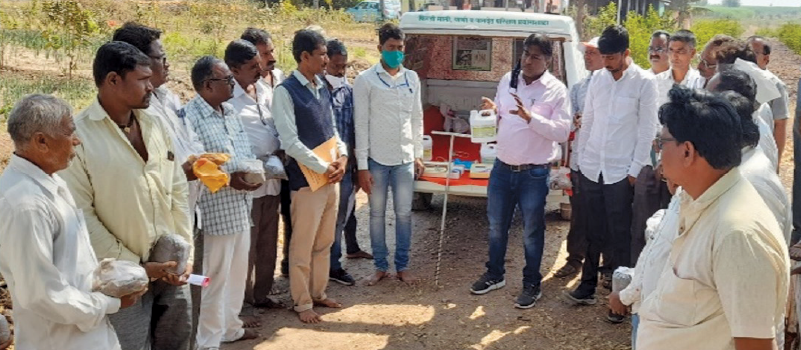
Regular Farmers meeting organised to discuss various technologies and issues in the villages.
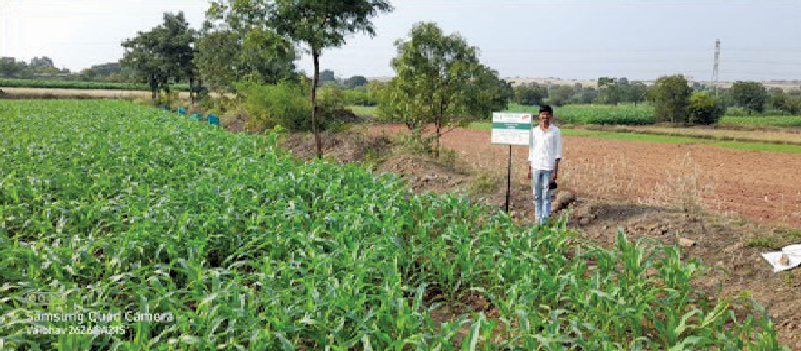
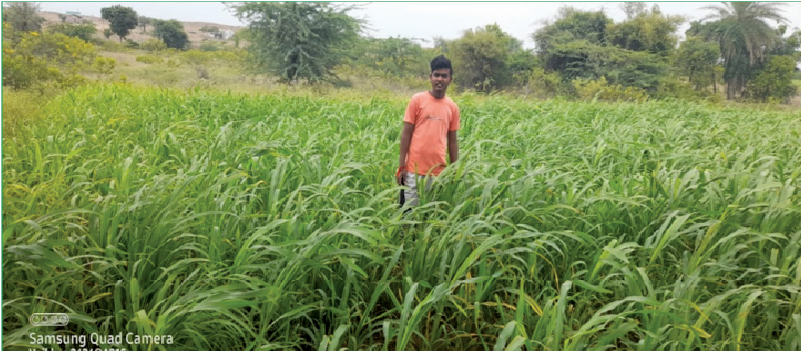
Latest consumer and cuisine trends are brainstormed during regular innovation days with our Customer, where new product concepts are also showcased. Annual Supplier Conferences and Business Partner Meetings are also held for close engagement with our strategic partners.
We carry out customer satisfaction surveys and with the feedback received from these surveys we implement a mechanism of performing Root Cause Analysis (RCA) and providing Corrective and Preventive Action (CAPA).
We also work on Key Accounts Manager (KAM) concept wherein KAM’s are at forefront, driving cross-functional interaction and providing relevant insights to all stakeholders.
We interact with our esteemed investors twice a year. We issue management letters, with results to explain the performance and other initiatives for ensuring smooth and efficient communication with stakeholders.
Our commitment towards the allround development of our farmers and community is implemented by the Company as well as Tasty Bite Foundation (TBF), a CSR arm of Tasty Bite. At TBEL, we strive to support local farmers and farmer groups by procuring fresh organic vegetables from them. In our farm, we interact with a large community of farmers and exchange information on modern organic farming techniques and sustainable practices.
TBF champions the cause of community service through rural development with the core purpose to be a catalyst for accelerating sustainable and inclusive rural development
Skill building programmes for the youth from nearby areas are held in association with the American India Foundation (AIF).
We undertook water conservation project in association with Agriculture Development Trust / Krishi Vigyan Kendra (KVK). During the pandemic, we extended our support by providing dry ration kits and ready-to-eat food to frontline workers. We also provided medical infrastructure like ventilators, oxygen cylinder and medicines to Covid Care Centre and hospital.
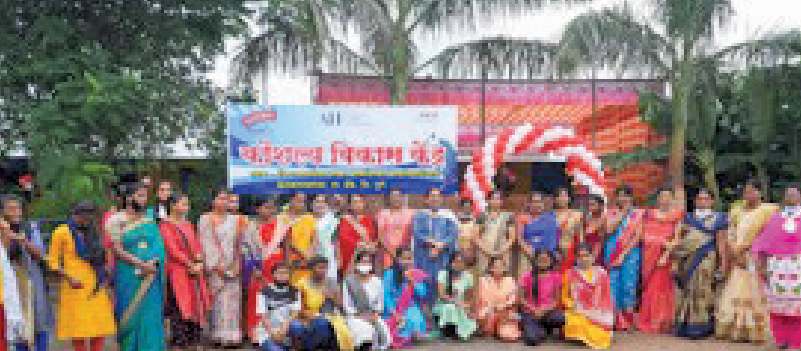
Koushalya centre at Deulgaon, Dist. Daund
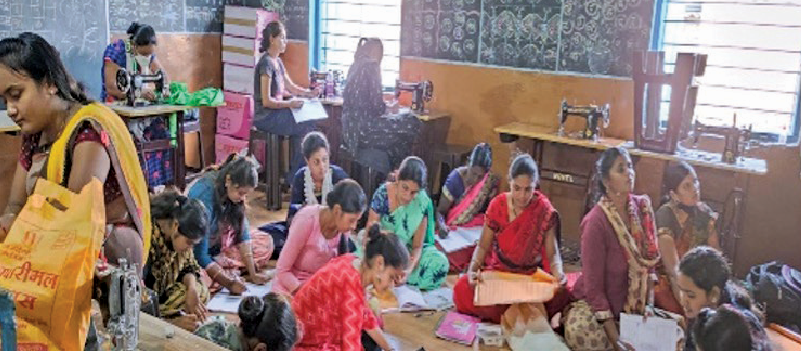
Tailoring centre at Padvi, Dist. Daund
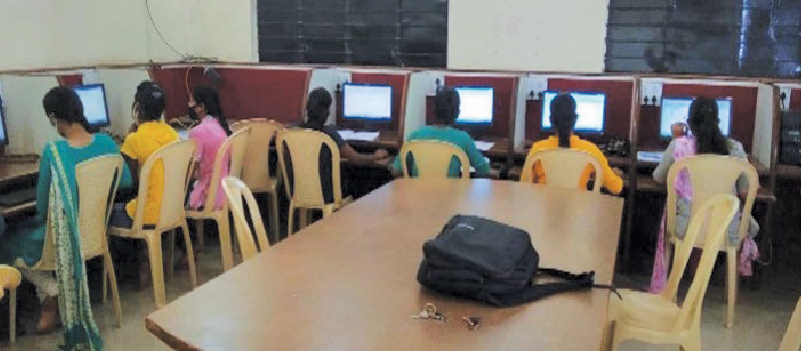
Computer centre at Padvi, Dist. Daund
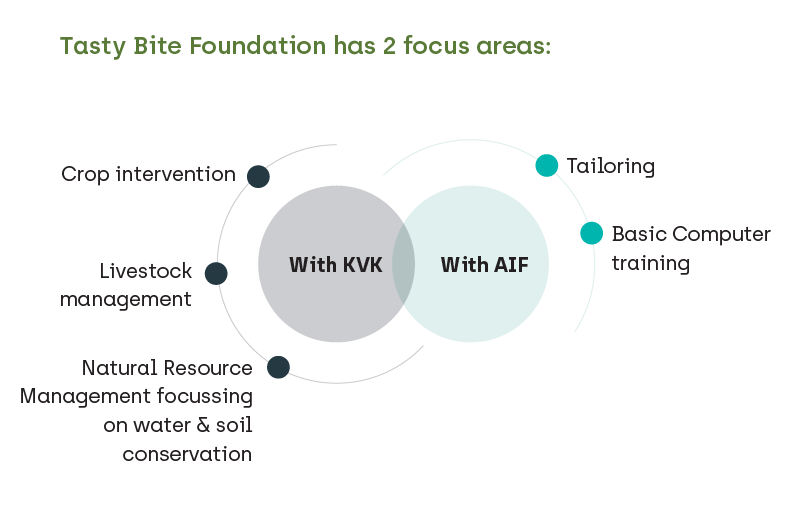
Watershed management, particularly Soil and Water Conservation (SWC) promotes sustainable livelihoods by reducing environmental degradation and maximising crop yield. With no canal irrigation in the region, villages in the Baramati and Purandar regions are entirely reliant on the seasonal rains. Water shortages frequently result in crop failure. As a result, irrigation for protection and natural resource management for soil and water conservation was the need of the hour for sustainable agricultural production.
We have built 4 new check dams and de-silted the existing check dams in an effort to increase water availability. We are also pursuing initiatives to support widening of water streams. Our community water projects have an ultimate volumetric benefit of 193 million litre/year
The natural streams were filled over time as a result of constant unchecked water runoff, which eroded the soil and increased agricultural damage. Restoration of the natural streams in Khor, Deulgaon gad and Padvi was done to conserve water by deepening, expanding, and building small barriers to hold water along the stream in phases. As a result, there is less water loss, increased percolation, and an increase in the water table.
In order to avoid runoff from croplands and conserve water, we have also pursued the construction of contour bunds and Matti Nala Bandh, which are water harvesting structures. Matti dams were designed to manage water flow while also storing water and increasing percolation, which enriches groundwater.

Cement dam at Chowdary wasti Khor
In order to enhance the nutrition and health of small farmer, food diversification is a crucial and sustainable strategy. As a result, expanding the scope of research & development to encompass a much larger range of crop species is necessary in order to address the livelihood possibilities in these communities
With the described approach in consideration, Krishi Vigyan Kendra (KVK) Baramati developed a number of crop intervention programmes for the farmers, particularly the women farmers, in Khor, Deulgaon Gad, and Padvi. These crop intervention programmes were imparted in the form of training and education through demonstrations.
With assistance from the KVK Baramati Centre two vegetable crops—brinjal and chillies— were selected for demonstration utilising the grafting technique. With the help of this technique, the prevalence of pests and diseases decreased and crop life was extended by two months
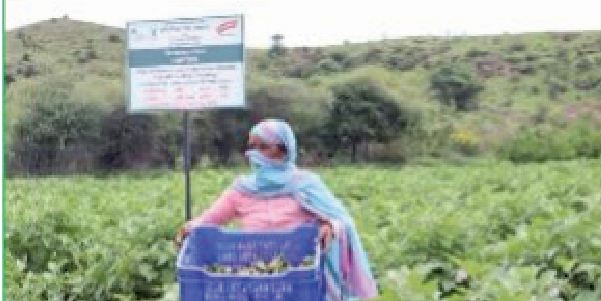
In order to utilise the unproductive lands, new crops like Red gram (pigeon pea) and Soybean crops for Kharif were introduced in the rainfed area. The farmers were also encouraged to plant Bengal gram and sunflower as intercrops in Rabi. This was to demonstrate the ability of two crops to grow under multiple crop agriculture.
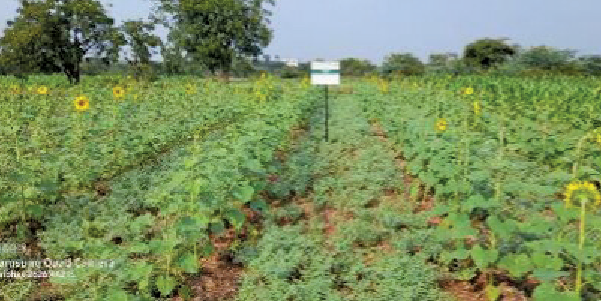
During Rabi, farmers in Khor, Deulgaon, and Padvi demonstrated how to conserve water in-situ for crops that are grown using rainwater. This method promotes crop growth during times of water stress.
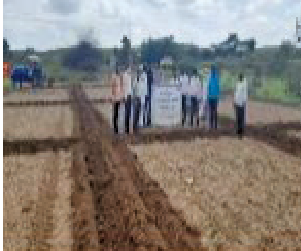
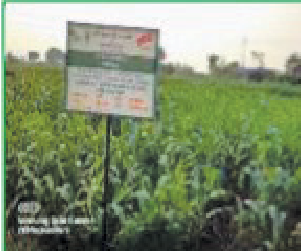
Onion seed farming was undertaken with 20 farmers on a total of 5 acres to demonstrate the seed production technique and its economics. This demonstrated generation of more revenue on a limited farm area.
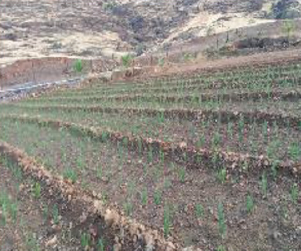
The socio-economic development of rural households is significantly influenced by the livestock sector. In addition, the role of women in the livestock sector is essential to achieve gender equality. Livestock rearing has a substantial beneficial influence on equity in terms of income and employment as well as poverty reduction in rural areas. About 200 women in the three villages received training in poultry management as part of a women empowerment initiative aimed at boosting family income. Each woman also received 25 birds, starter feed and feeder equipment. This helped to promote household health and nutrition as well as productivity
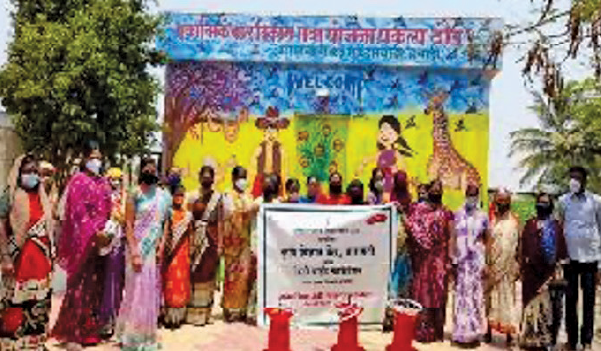
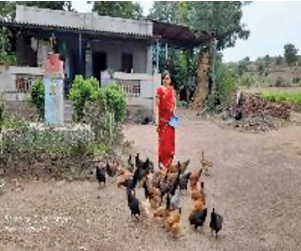
We established the Integrated Farming System (IFS) model of farming, where the farmers were encouraged to undertake poultry, goat farming, drumstick and custard apple horticultural farming, in order to enable small farmers to increase the profitability from agriculture. With this approach, a farmer in a small region can engage in various farming endeavours and boost income. We have also introduced vegetable gardening to approximately 90 farm households to help support this system and provide supplemental revenue.
The milk production of milch cows decreases during the summer as cows are compelled to rely on dry fodder instead of a nutritious diet. To address this issue, we organised two types of demonstrations. The first demonstration introduced a new kind of multi-cut hybrid bajra that was produced for green fodder. The farmer harvests two rounds of green fodder before harvesting. The second demonstration focused on the production of silage using maize as a fodder crop for dairy animals during the summer. To overcome the issue, KVK has developed a silage-making technique that allows farmers to sow maize as a fodder crop
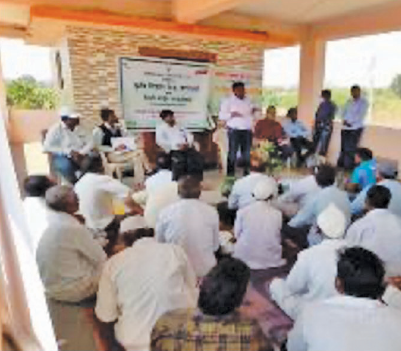
To promote women’s economic independence Tasty Bite Foundation (TBF) collaborated with the American India Foundation Trust (AIF) to empower village women via multi-skills training in order to foster entrepreneurs in the community and provide sustainable means of subsistence. With this goal in mind, TBF and AIF trained the women in two skills, including computer skills and tailoring. In Padvi and Deulgaon Gad, we constructed a tailoring class and a computer lab to provide infrastructure support for training. As part of this venture, twenty students were chosen for a three-month training in each skill and after completion, participants received certifications that were recognized by National Skills Qualifications Framework (NSQF).
By imparting these skills TBF and AIF have provided economic growth opportunities to these women. About 40 students who received computer training have found jobs, while 12 students who were trained in tailoring have started their own tailoring business.
